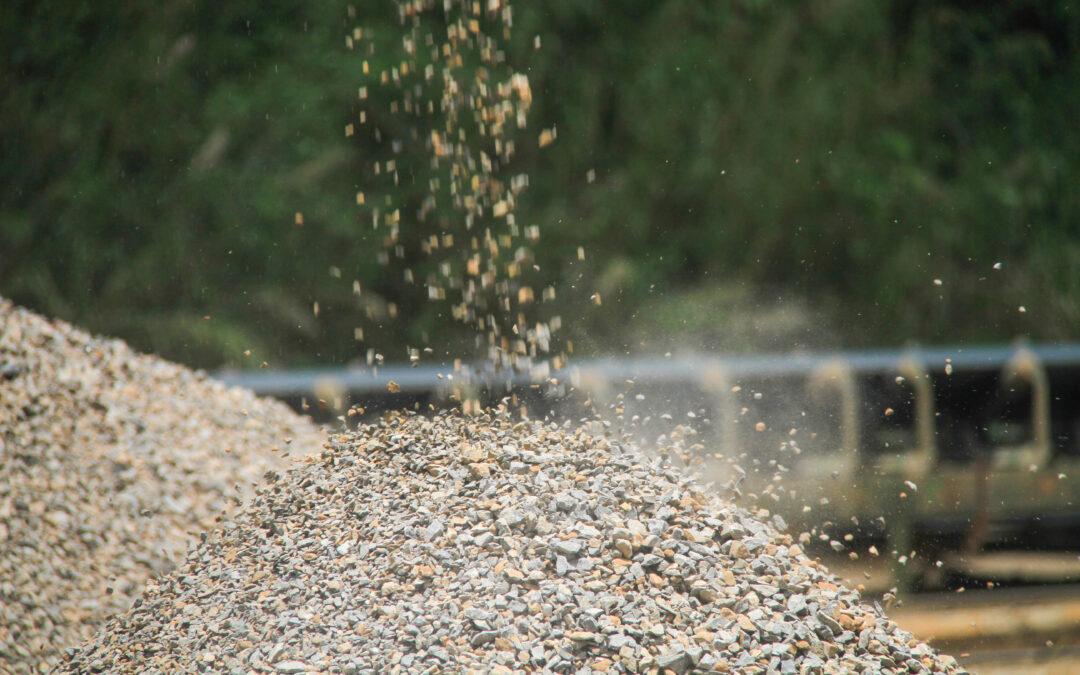A bipartisan group of Michigan lawmakers are resurrecting a proposal to transfer oversight of aggregate mining permits and operations from local communities to state regulators amid a roughly eight-year fight over efforts to open new mines.
But the introduction of the bills was met with staunch opposition Wednesday by environmental groups that accused Democratic leadership of reneging on campaign promises.
The bill package has the backing of House Appropriations Chairwoman Rep. Angela Witwer, D-Delta Township; Rep. Tyrone Carter, D-Detroit; and Rep. Pat Outman, R-Six Lakes. A similar proposal was floated last term by then-Senate Democratic Leader Jim Ananich of Flint.
Witwer said the shift of permitting responsibilities to the Department of Environment, Great Lakes and Energy makes sense considering the department’s existing oversight duties for other mining operations. She said she also sees it as an important policy to strengthen Michigan’s aggregate supply chain.
“We truck aggregate in and sometimes we have to truck it in from out of state and it does two things: It costs more money for the state and it also hurts our roads to truck in aggregate,” Witwer said.
Leading the charge for the change to state law is a coalition called Build It Michigan Strong made up of the Michigan Aggregates Association; the Michigan Infrastructure and Transportation Association comprised of road construction companies; labor unions such as the Operating Engineers, Michigan Teamsters and Michigan Laborers District Council; and state and local chambers of commerce. The group expressed strong support for the legislation Wednesday.
“Michigan’s crumbling infrastructure and strong economy are driving up demand for a limited amount of permitted aggregate supplies,” said Doug Needham, executive director for the aggregates association. “These permitted supplies are limited because of activists who intimidate local elected officials into delaying and denying the opening of new mines.”
A bulldozer grades aggregate base just north of Michigan Avenue in April 2022 as part of the reconstruction of Interstate 275 in western Wayne County.
But before the bills could even be read in on the House floor Wednesday, environmental groups came out strongly against the proposal, which they also opposed last session, arguing there are not enough guardrails in the bills to protect water quality in wetlands where mining operations are frequently located. The groups argued Democratic leadership was backtracking on environmental promises made on the campaign trail.
“It’s the signal that state House leadership is prizing multi-client, dark money-backed priorities instead of the clean energy initiatives they promised to work on,” said Christy McGillivray, of the Sierra Club Michigan.
Mary Brady Enerson, Michigan director for Clean Water Action, called the introduction of the bills as the first major environmental policy of session “shocking.” After Democrats gained control for the first time in 40 years in November, environmental groups that helped elect them hoped to see polluter pay, climate change action, and water protections prioritized, she said.
“There is a pathway to make that legislation better and we’re open to having those conversations,” Brady Enerson said of the aggregate bills. “But it should not be the very first thing they’re taking up.”
Witwer argued the House has expressed support for environmental causes through the allocation of money toward electric vehicle battery plants and with funding in the upcoming budget.
House Speaker Joe Tate has not yet reviewed the details of the legislation, said Amber McCann, a spokeswoman for the Detroit Democrat.
“This is an issue that has seen debate for years and the speaker expects to hear from the various stakeholders regarding their concerns and suggestions,” McCann said.
Gov. Gretchen Whitmer’s office, when asked for comment, said the governor remained committed to “fixing the damn roads and bridges.”
“We are always open to working with anyone to pass laws that will help us make even more progress, and will be reviewing these bills as they make their way through the Legislature,” said Bobby Leddy, a spokesman for Whitmer.
Needham argued the current system requires aggregates to be trucked longer distances to work sites, increasing emissions. He also said the plan being proposed Wednesday has guardrails to ensure protections — such as state environmental oversight, public comment periods, defined hours of operation and soil conservation plans — are still in place.
“There has been considerable tweaking and movement on these bills as they’ve made it through the legislative process,” Needham said.
The debate over the opening of new aggregate mines in Michigan comes amid a clash between a press for additional aggregate for road construction and mounting opposition from local communities opposed to having the operations in their backyards. The competing interests have spurred a years-long debate splitting Republican and Democratic caucuses as they wrangle with questions regarding environmental concerns and efforts to usurp local control.
While the debate began over an effort to open a 497-acre, 30-year aggregate mining operation in Lapeer County’s Metamora Township, it’s played out in similar fashion in communities across Michigan.
Needham estimated aggregate businesses have about a dozen mining operations on hold in court or in “delay and deny” processes playing out in local townships.
Ananich, in promoting the legislation last year, said it would help to relieve local governments of the permitting burden by shifting those responsibilities to state regulators and allow for a uniform decision-making process across the state. The legislation passed through the Senate but stalled in the House.
The legislation under Ananich would require EGLE to assess a fee on sand and gravel products for “purposes of surveillance, monitoring, administration and enforcement.” The department could also take action if a mining permit results in an “imminent and substantial endangerment to the public health or safety, environment or natural resources.”
This article originally appeared in The Detroit News. For more, click here.

